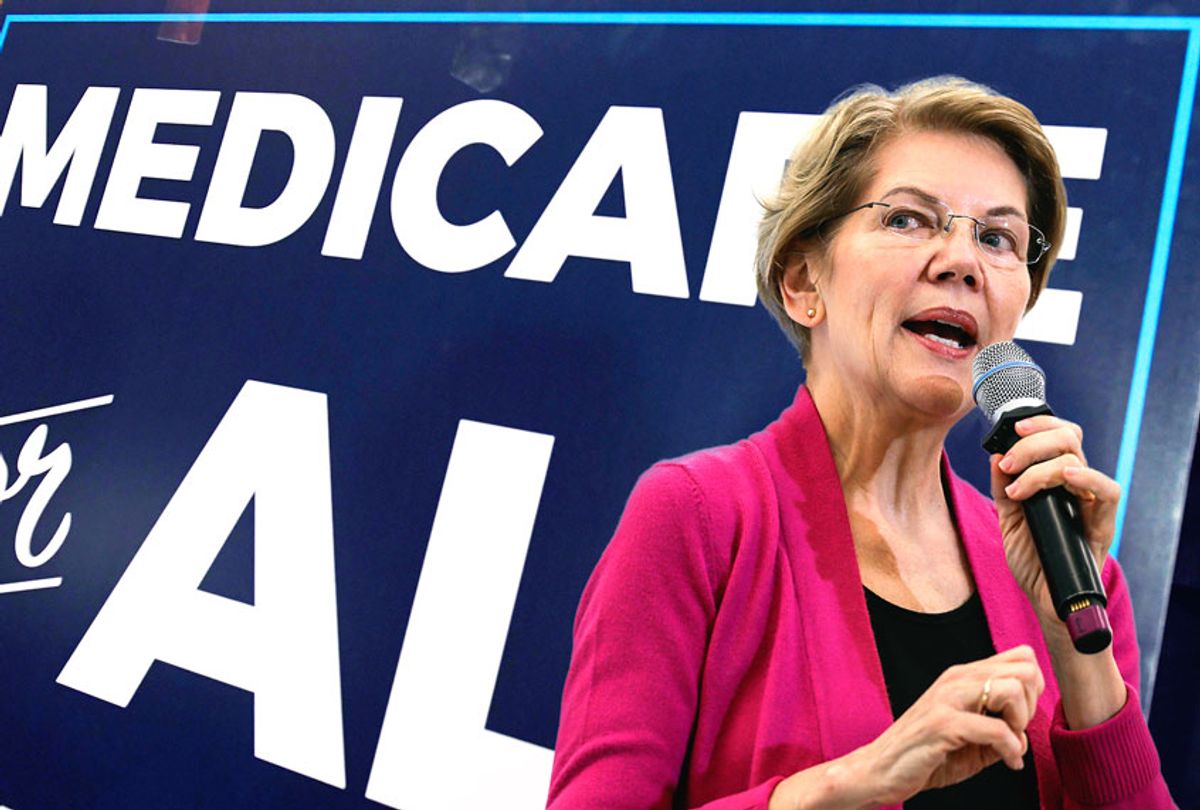Poverty makes people sick. Families in poverty are more likely than wealthy families to get sick, stay sick, and delay medical treatment because of cost. What’s not recognized enough is that our broken and unfair private health insurance system actually helps facilitate the movement of money from the poor to the rich.
While I want to make clear that this is not an endorsement of a specific candidate in the race, I’m pleased to see that Sen. Elizabeth Warren’s newly released Medicare for All plan takes both issues head on and uses reforming health care as a vehicle to fix the systematic problems contributing to the income inequality crisis. Senators Warren and Sanders have exhibited tremendous leadership in fighting to make health care truly universal and accessible without bankrupting Americans who need care the most.
The plan Warren announced not only pays for Medicare for All without raising taxes on low- and middle-income families, but puts $11 trillion in spending power back into the pockets of these families over 10 years because they will no longer be paying out of control health insurance premiums, in addition to eliminating co-pays and deductibles from the system.
This proposal will essentially be a tax cut for most working Americans — and one that is badly needed as health care costs in our current system are making a middle-class life increasingly out of reach.
Not only are medical bills still the leading cause of personal bankruptcy in America, but a studyreleased last year by Dr. Andrea Christopher of the Boise Veterans Affairs Medical Center found that our private health insurance system actually makes the rich richer and the poor poorer.
According to the study, subtracting medical debt from household income for low- and moderate-income families actually pushes millions of these households below the federal poverty level. Our health care system — full of co-pays and deductibles and other out-of-pocket costs that families struggle to afford — redistributes nearly 1.5 percent of income each year from poorer individuals to wealthier individuals — compounding the problem of nationwide income inequality.
Warren’s plan tackles these issues head on by making large corporations and the wealthiest Americans pay their fair share into the system. More than half of the total Medicare for All costs will come from multinational corporations and the richest 1 percent of Americans. This builds a health care system that is not only sustainable, but also equitable and fair.
The rich earn money much differently than the rest of the country. Instead of a paycheck twice a month, the way wealthy individuals these days earn most of their money is off their own money — interest from investments, properties, and other assets. These modes of unearned income are also taxed at much lower rates than labor income. The system has been rigged in their favor — and Sen. Warren is smart to tap these sources to fund a national health care program.
Poverty is an extremely personal issue for me. Long before I was founding socially conscious companies and working to combat inequality, I was raised by a single mom who worked hard, but had few resources, in an economic system that made our lives more difficult.
My experience is too common across the United States, the richest country on the planet. Eight out of ten Americans live paycheck to paycheck, putting them one medical emergency away from being broke. No family should live in poverty. And that means we need a system like Medicare for All to ensure that all people, no matter their income or resources, have access to essential health care services.
Raising the minimum wage, expanding the Earned Income Tax Credit, and investing in affordable and high-quality childcare are all true and tested ways of leveling the economic playing field and putting more money in the pockets of working people. Medicare for All, though, is as close to a silver bullet as we can get on fighting poverty: the policy would cut the number of Americans living in poverty by 20 percent.
More presidential candidates need to talk about income inequality on the campaign trail. Despite all the media attention, speeches, and studies, every measure shows the problem continues to grow in the U.S. In 2017, the richest 0.1 percent took in 188 times the income of the bottom 90 percent. Earnings for the top 1 percent have doubled in the last 50 years while the poverty rate has remained mostly the same.
Not only would this plan expand health care access as a right across the country, but it would also lift millions of families out of poverty. Taking the profit out of our health care system — and asking those who have benefited most from America to contribute more to the public good — will help rebuild this economy so that it works for all Americans.



Shares